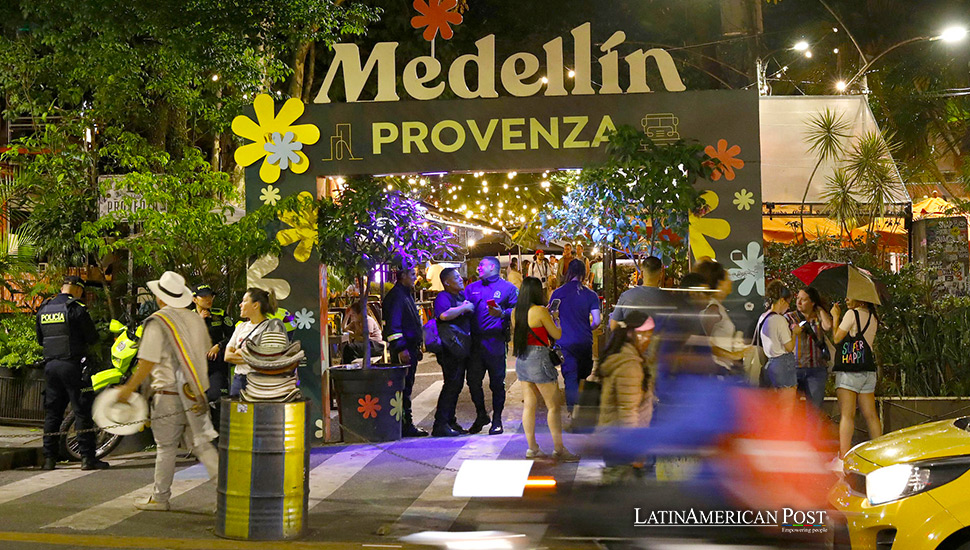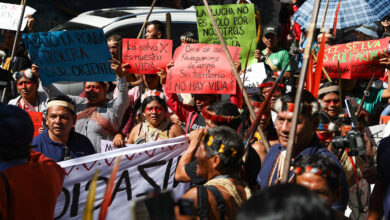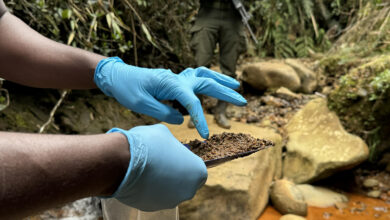Medellín, Colombia’s Harsh Face of Tourism – Child Abuse, Sex, and Drugs

Medellín’s six-month ban on sexual services highlights a struggle against minor exploitation, reflecting a city’s complex battle with its rising appeal for sex and drug tourism, amidst efforts to shed a violent past and reshape its urban and cultural landscape.
In the bustling streets of Medellín, Colombia, a bold initiative is underway to challenge the city’s growing reputation as a hub for sex and drug tourism. The local government’s decision to impose a six-month ban on sexual services within its tourist precincts has sparked intense debate and brought to light the deep-seated issues of exploitation and abuse lurking within the city’s vibrant facade.
A City at a Crossroads
Medellín, internationally praised for its dramatic urban and social transformation, is at a crossroads. The city’s allure to tourists, once centered on its cultural richness and historical significance, is increasingly tainted by the darker elements of sex and drug trades. This shift has been marked by alarming incidents, such as the case involving American Timothy Alan Livingston, accused of sexually abusing minors, which escalated to an international call for extradition by President Gustavo Petro, spotlighting Medellín’s challenges on the global stage.
The response from local governance, led by figures like Carlos Calle of Medellín’s Tourism Observatory, underscores the urgency of redefining the city’s tourism narrative. Calle’s frank depiction of a “negative tourist profile” — visitors who exploit the city’s leniency for illicit pleasures — highlights the need for a strategic overhaul of tourism policies. The past approach, largely passive and reactive, proved ineffective against the burgeoning sex tourism and associated criminal activities.
While economically beneficial, the growing leisure and entertainment sector has compounded the city’s predicaments. Data from NGOs, such as Valientes, paint a grim picture of the situation, with hundreds of minors victimized annually. The sexual exploitation issue, although magnified in Medellín and Cartagena due to their media prominence, is a widespread concern across Latin American tourist destinations. For instance, the Caribbean island of San Andrés has seen a significant yet underreported spike in such crimes post-pandemic.
Complex Narratives and Perspectives
The narrative around Medellín’s sex tourism is complex and multifaceted. Public figures like Colombian author Carolina Sanín have criticized the city’s evolving image, equating its transformation to an “open-air brothel.” This perception, fueled by visible street-level prostitution in areas like El Poblado, challenges the city’s authorities to differentiate between consensual adult sex work and exploitative practices.
Valery Parra, representing Sintrasexa, voices a crucial distinction between voluntary sex work and the darker facets of sexual exploitation and trafficking. She condemns the blanket suspension of sexual services, advocating for a more nuanced and informed policy approach that addresses the root causes while protecting the rights and dignity of adult sex workers.
A Regional Challenge
Medellín’s current predicament is a microcosm of a more significant regional issue. Across Latin America, cities balance promoting tourism as an economic driver and mitigating its negative externalities. The pervasive nature of sex tourism, often intertwined with drug trafficking, requires a concerted effort from all sectors of society, including government, law enforcement, NGOs, and the tourism industry itself.
As Medellín embarks on this challenging journey, regional and international communities will closely monitor its strategies and outcomes. The city’s efforts to recalibrate its tourism sector and enforce protective measures for the vulnerable are about local governance and setting a precedent for other Latin American cities grappling with similar issues.
Also read: Colombian Senate Committee Rejects Petro’s Health Reform
Medellín’s six-month moratorium on sexual services is a pivotal moment in the city’s ongoing narrative. It reflects a broader commitment to eradicating the exploitation and abuse that marred its reputation. The success of this initiative will depend on the city’s ability to implement comprehensive and sustainable solutions that balance the needs of its tourism industry with the imperative to protect human rights and promote social justice. As Medellín navigates these complex waters, its actions will resonate beyond its borders, offering lessons and insights for other cities facing the challenges of modern-day tourism in Latin America.




